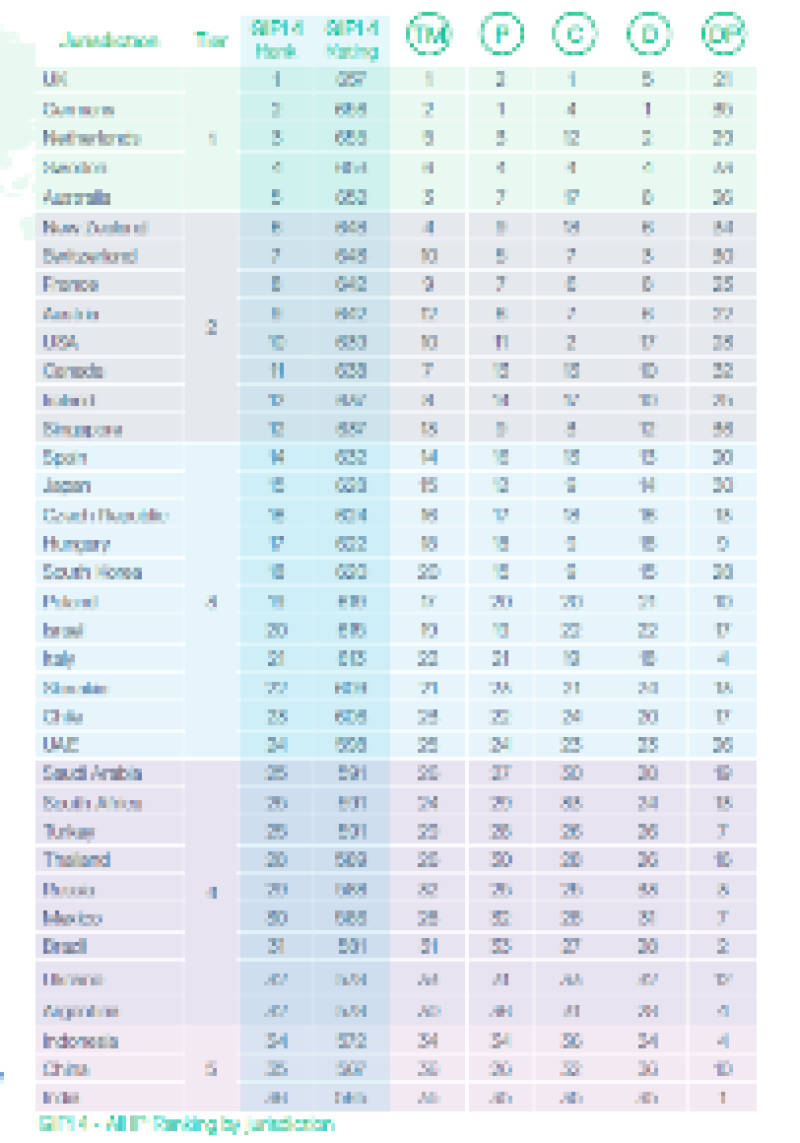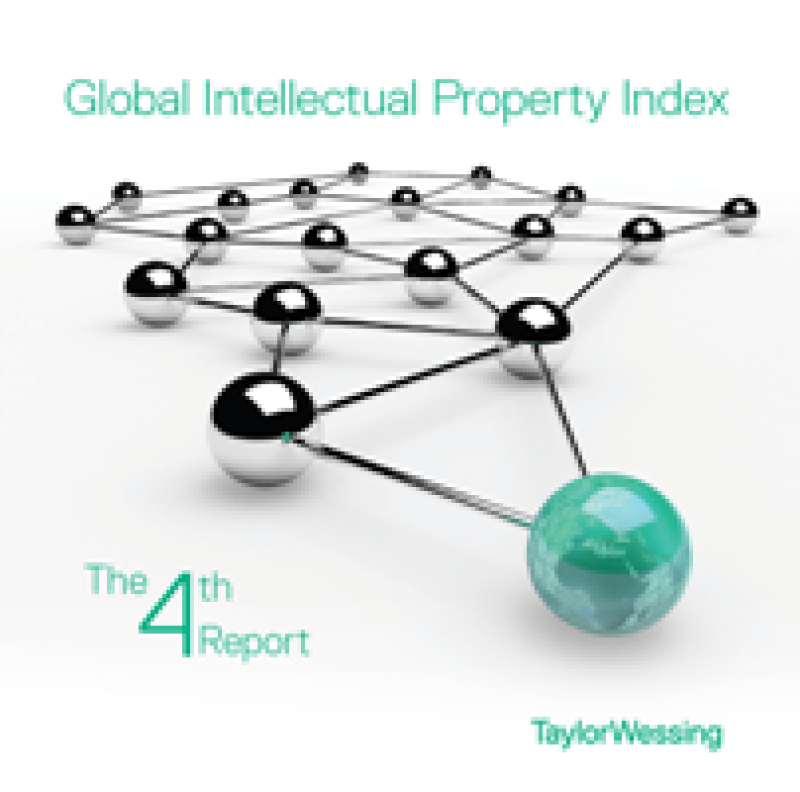
As we reported yesterday, law firm Taylor Wessing has published the fourth edition of its Global IP Index, which compares the IP regimes in 36 countries.
Of course, the first thing we all look for is who’s high, who’s low, who’s up and who’s down. (Expect some celebration from UK government ministers at its top rank – Business Secretary Vince Cable has been known to cite the report before.)
But when you look closer at the Index, and in particular compare it with the three previous iterations, what’s notable is that generally speaking the gap between countries is narrowing.
The methodology of the Index is slightly complex, but in summary each country is assigned a rating between 0 and 1000. In 2011, in GIPI 3, the top rating was 751 (Germany) and the bottom was 537 (India). In GIPI 4, the top rating is 657 (UK) and the bottom is 565 (India, again).
In other words, the gap between top and bottom has narrowed significantly from 214 to 92 points, with the lower-ranked countries climbing up considerably and the top-ranked ones remaining stable or even declining a bit. And that is despite the addition of 12 new countries.
I asked Roland Mallinson, the Taylor Wessing partner who has coordinated the GIPI since its inception, what he made of this. He believes the narrowing spread is partly due to harmonisation (of law and enforcement) and partly that “expectations have risen” due to globalisation, with offices, lawyers and courts in developing countries striving to improve.
It’s certainly true that the past couple of years have seen some prominent initiatives towards harmonisation (though we are yet to see the effect of many of these). Consider the US America Invents Act, the EU Unitary Patent/UPC and the recently announced amendments to China’s Trade Mark Law.

More generally, as Roland points out, membership of international treaties is growing. We have written extensively about the expansion of the Madrid System for trade marks, and it’s notable that New Zealand, which joined Madrid last year, rose up six places in the GIPI trade mark ranking this year. Similarly, systems such as the PCT and the Hague Agreement (for design rights) are growing (with the US, China, Korea, Japan and Russia all expected to join the latter soon).
You wouldn’t want to overstate things: there are still a lot of areas where harmonisation can be improved, and least-developed countries were recently granted an eight-year extension to comply with the TRIPs Agreement. But the IP Index suggests users perceive that, in IP terms, the world is getting smaller – and that must be welcome.









